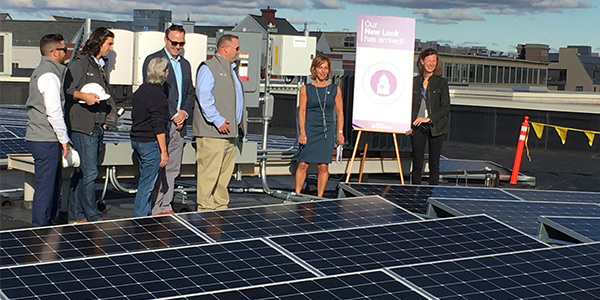The town of West Hartford, Conn., is struggling to bring diverse voices to its new all-volunteer Sustainability Advisory Group.
The Town Council passed a resolution in February to form the group as a civilian task force to support town staff. Officials want the membership to “reflect West Hartford’s diversity and bring new voices to the table,” Catherine Diviney, energy specialist for the town, said during a webinar on Tuesday.
But members of the town’s Clean Energy Commission last week discussed challenges they are facing in finding a diverse group of volunteers. Recruiting for the 20-member group is still in process. Now, the commission wants to find options for attracting a diverse base by compensating individuals who might need financial support in order to participate.
The primary role of the group will be to assist the town with its Sustainable CT application, which is due in August. The state program certifies municipalities by awarding points for activities in a variety of categories, such as equity, clean transportation and renewable energy infrastructure.
The town, Diviney said, also expects that the group’s discussions will “spur new ideas and future action that we haven’t even yet considered.”
West Hartford’s population is 27% people of color, according to Mayor Shari Cantor, who gave a welcome message for the Sierra Club-hosted webinar on 100% renewable energy in municipalities.
“Many people think of West Hartford as a wealthy, white suburb of Hartford; however, we are in fact a really diverse community,” Cantor said.
There are more than 80 languages other than English spoken in the town’s 24,000 households, she said, and 27% of area students receive free and reduced lunch.
“While energy and sustainability have been on our agenda for a long time, I believe we should and can do much more, especially for those families that are struggling,” she said.
The energy commission is in the process of updating a comprehensive energy plan for the town that was adopted in 2009. Cantor said the council will consider the final draft of that plan as soon as it completes the town budget.
In its update, the commission expanded the energy plan from a focus only on town operations to include the entire West Hartford community. Diviney said the commission also included a statement on equity and environmental justice.
The statement says that the town must seek out multiple perspectives to move forward on energy in a meaningful and inclusive manner. It also says that an inclusive pathway involves calling out individual and systemic racism and dismantling barriers.
Last year, municipal energy use in West Hartford was 100% clean energy, but Diviney said the town needs to step up its efforts.
“I feel like we’re lacking a sense of urgency,” she said, adding that passing a climate emergency resolution might help create that urgency. The energy commission has agreed to vote in April on whether to bring a draft emergency resolution to the council.
Diviney said the town also needs to “say no to fossil fuels and make that commitment to an alternative path.”



